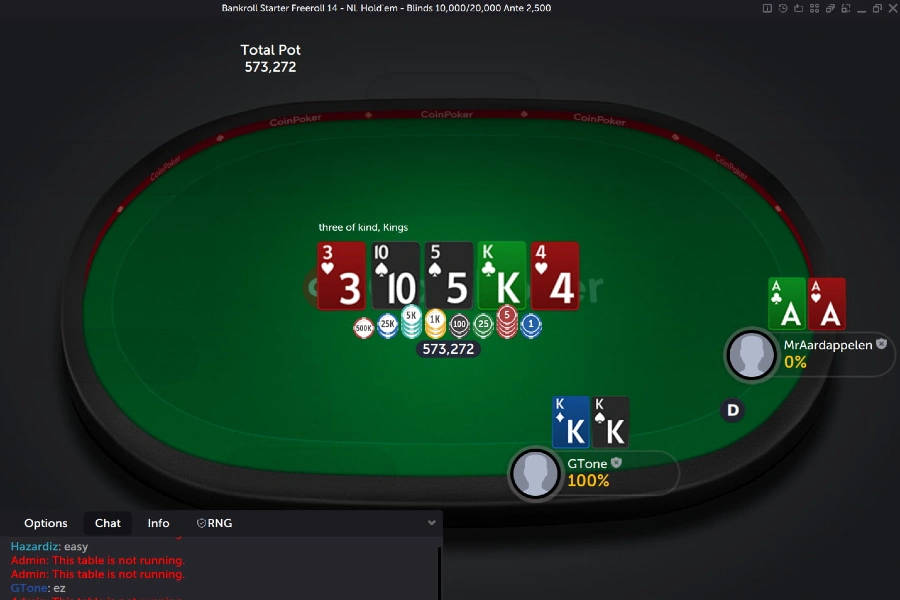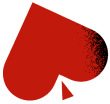
Poker Cheat Sheet – Simple Reference for Players
Welcome to your simple poker guide, with all the info you need to start playing and winning at the table.
We’ve put everything you need to know here, but for a much deeper dive, we have a comprehensive poker cheat sheet.
Part 1: Poker Terms & Lingo
Poker terminology is the language of the game; understanding it will help you learn strategy and communicate with other players. Knowing these simple terms can make you a more confident player and add to your understanding of the game. Here’s a quick list, but for everything, check out our full length poker glossary.
- Button: The dealer button, marking who acts last in a round.
- Position: A player’s seating position relative to the button.
- Blinds: The forced bets made by the two players to the left of the dealer button.
- Call: To match the amount of the last bet or raise.
Part 2: Poker Hands & Rankings
In poker, hand ranking is the fixed order of winning card combinations. This ranking system determines which hand is the most valuable and, therefore, the winner of a pot. Here’s a quick list of top hands, but we also have a complete guide to hand rankings.
- Royal Flush: A, K, Q, J, 10 of the same suit.
- Straight Flush: Five consecutive cards of the same suit.
- Four of a Kind: Four cards of the same rank.
- Full House: Three cards of one rank and two of another.
- Flush: Five cards of the same suit.
- Straight: Five consecutive cards of different suits.
- Three of a Kind: Three cards of the same rank
- Two Pair: You hold two separate pairs of matching cards of the same rank.
- One Pair: You hold two matching cards of the same rank.
- High Card: No combination, the highest card you hold is your combination.
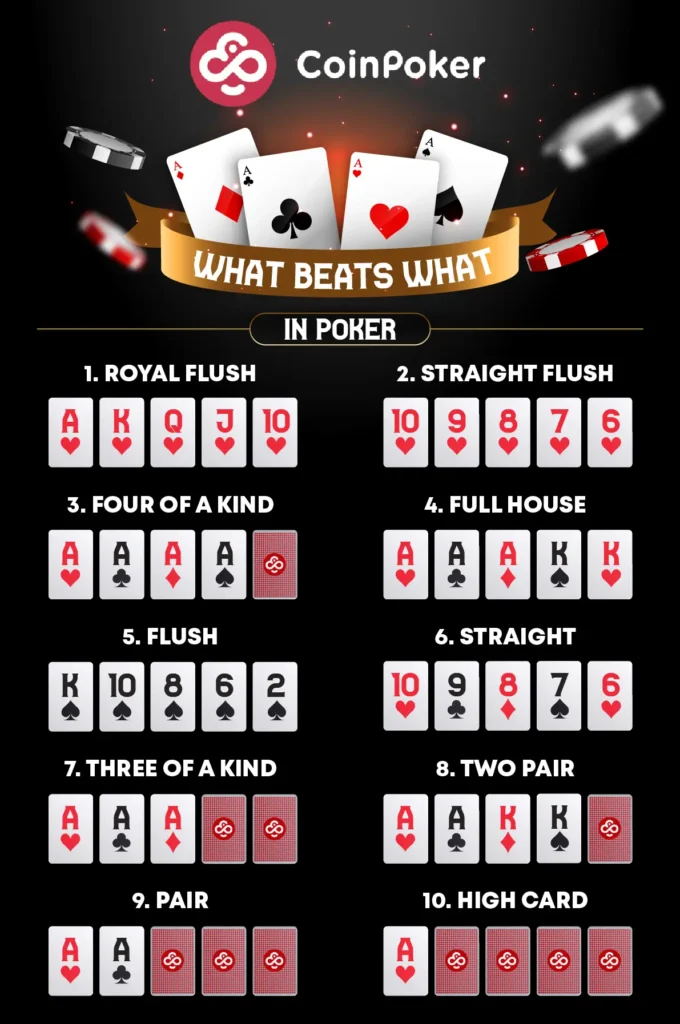
Part 3: Actions & Betting Rounds
Poker players have a range of actions they can take during a hand, and understanding these options is vital to playing well.
- Check: To pass the action without betting.
- Fold: To give up your hand and exit the round.
- Bet: To place the first chips into the pot.
- Raise: To increase the size of an existing bet.
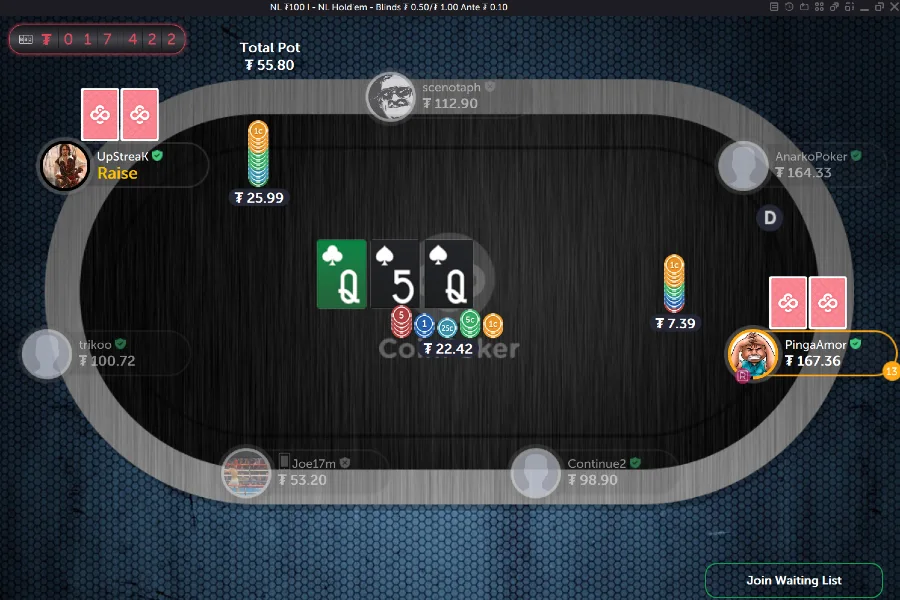
You’ll use the above actions during the four betting rounds:
- Preflop: The first betting round before any community cards are dealt.
- Flop: The round after the first three community cards are revealed.
- Turn: The round after the fourth community card is dealt.
- River: The final betting round after the fifth and last community card is shown.
Part 4: Poker Table Positions
Poker table positions are crucial as they are the order in which players act during a hand. Having a good position means you’re among the last to act, which gives you a strategic advantage. Here are the key positions:
- Early Position: Acting first or second after the blinds.
- Middle Position: Acting after the early positions.
- Late Position: Acting last, right before the blinds, with the most information.
- Button: The best position at the table, acting last in every betting round.
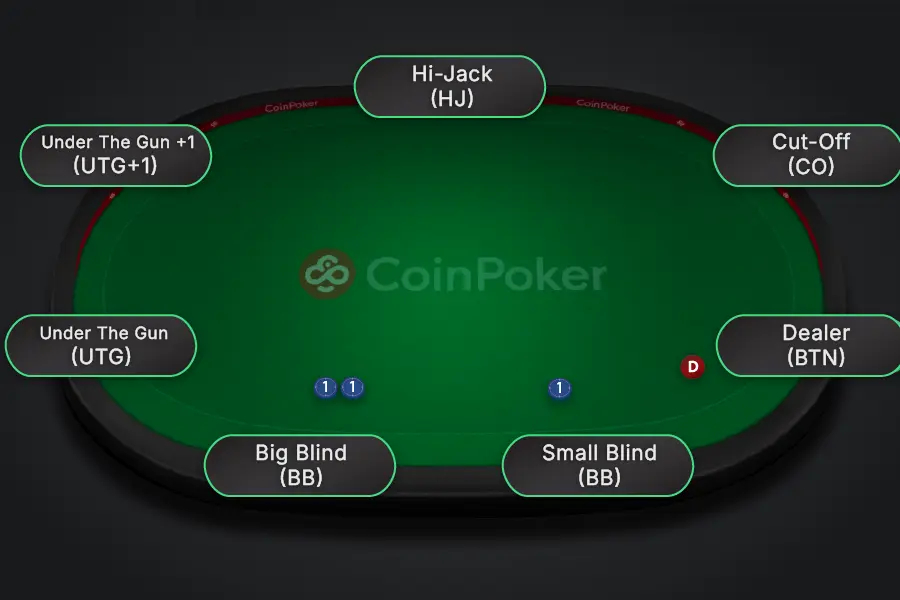
Part 5: Preflop Starting Hands
Knowing which two cards to keep before the flop is a key part of winning any hand. Your preflop starting hand is the basis of your hand’s potential, so you want to be selective. Strong hands, like a pair of Aces, are more likely to win.
Weaker hands, like a 7-2 offsuit, are statistically bad and should almost always be folded. Knowing which hands to play, and from which position, can help you win and save you money in the long run.
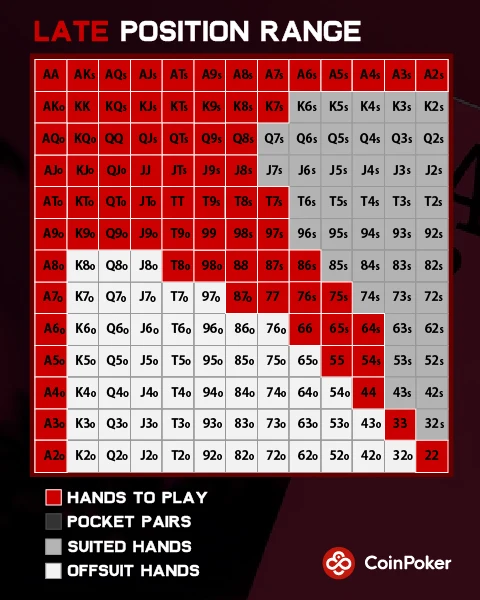
Part 6: Fundamental Poker Strategies
Winning at poker requires more than just luck; you need a solid strategy. Learning the core concepts is essential, and these help you to become a better player and consistently make profitable decisions. Key strategic elements include understanding when and how to 3-bet to apply pressure, as well as bet sizing to control the pot.
Your approach will also change depending on the format. Strategies for cash games, where blinds are constant, differ from those in tournaments, where blinds increase over time. By studying these core concepts, you can build a solid game plan that adapts to any situation.
Keep Learning and Testing Your Skills
It’s time to put these into practice, and when you register with CoinPoker, you can learn as you play.
We have a selection of award-winning games, with low-stakes tables and freeroll tournaments to try your hand at. Take the first steps to becoming a pro, boost your bankroll, and improve your fundamentals with every game.
